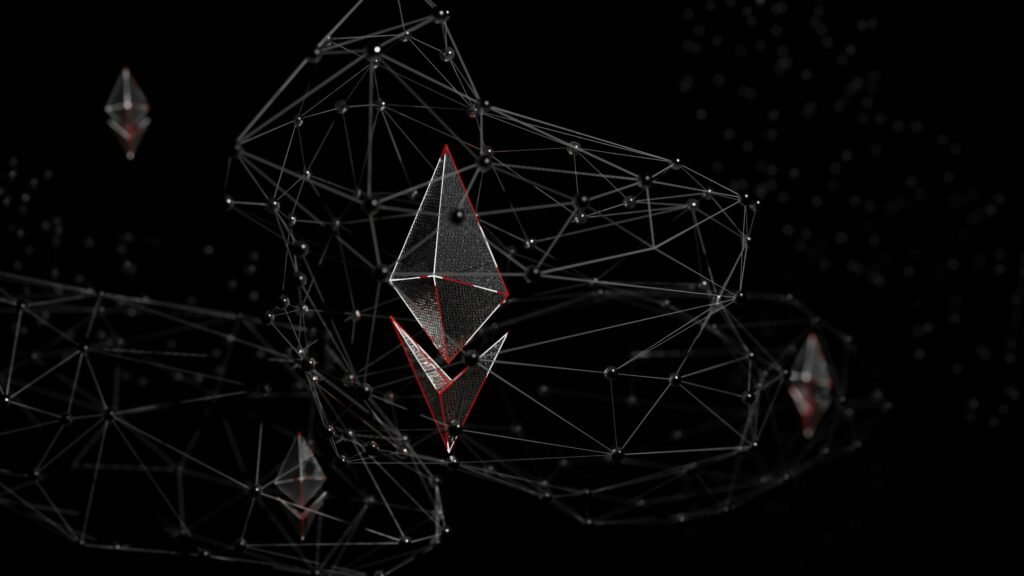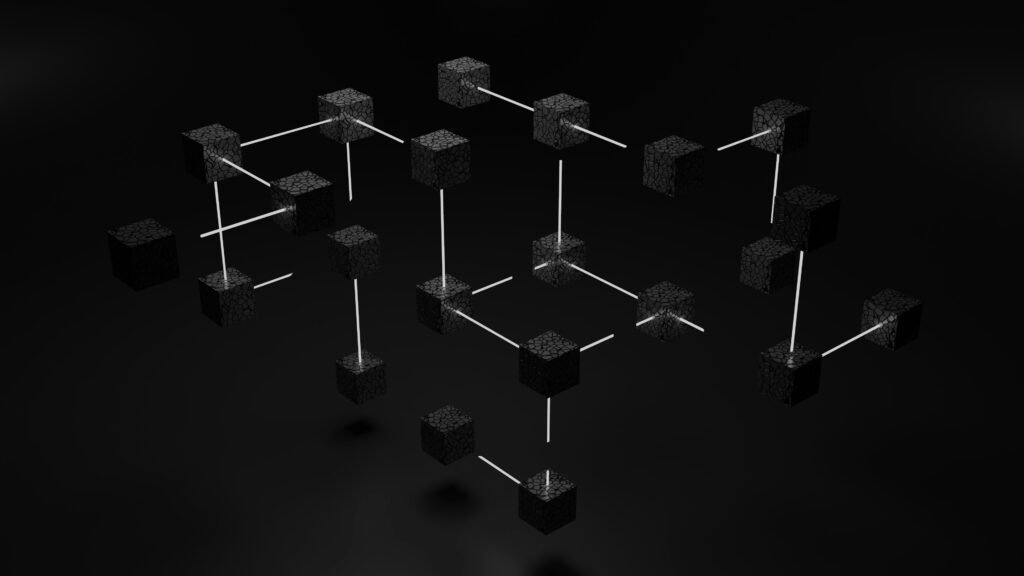Hey there! Today, we’re diving into the fascinating world of how blockchain technology is completely transforming the healthcare industry. From enhancing data security to streamlining administrative processes, blockchain is revolutionizing the way we approach healthcare. Let’s explore how this innovative technology is making waves in the healthcare sector and improving patient outcomes. Hey there, have you ever wondered how blockchain technology could potentially revolutionize the healthcare industry? Well, you’re in for a treat! In this article, we’ll dive into the world of blockchain and explore its impact on healthcare. Let’s get started!

This image is property of images.unsplash.com.
Check out our Product Reviews
Understanding Blockchain Technology
Blockchain technology is a secure, decentralized digital ledger that records transactions across a network of computers. Each block in the chain contains a unique cryptographic hash of the previous block, making it virtually impossible to alter past transactions. This technology ensures transparency, immutability, and security, making it ideal for healthcare applications.
Why is Blockchain Secure?
Blockchain technology utilizes advanced cryptographic techniques to secure transactions. Each block is linked to the previous block through a unique hash, creating a chain of blocks that cannot be altered without the consensus of the network. This makes blockchain highly resistant to tampering and fraud, ensuring the integrity of healthcare data.
Applications of Blockchain in Healthcare
Blockchain has the potential to transform the healthcare industry by improving data security, interoperability, and transparency. Let’s explore some key applications of blockchain in healthcare:
Electronic Health Records (EHR)
Blockchain technology can streamline the management of electronic health records (EHR) by securely storing patient data in a decentralized network. Patients can have full control over who accesses their health information, ensuring privacy and confidentiality. Additionally, healthcare providers can access real-time, accurate patient data, leading to better clinical decision-making and patient outcomes.
Supply Chain Management
Blockchain can revolutionize supply chain management in healthcare by tracking the movement of pharmaceuticals, medical devices, and supplies. By recording transactions on a secure ledger, blockchain enhances transparency, reduces counterfeit products, and improves traceability. This is crucial for ensuring the safety and efficacy of healthcare products.
Telemedicine and Remote Patient Monitoring
Blockchain enables secure and efficient telemedicine and remote patient monitoring solutions. By leveraging smart contracts, healthcare providers can automate patient appointments, prescriptions, and payments. This enhances convenience for patients and allows for more personalized, seamless care delivery.
Check out our Product Reviews
Benefits of Implementing Blockchain in Healthcare
Implementing blockchain technology in healthcare offers a wide range of benefits for patients, healthcare providers, and other stakeholders. Let’s explore some of the advantages of integrating blockchain into the healthcare ecosystem:
Data Security and Privacy
One of the primary benefits of blockchain in healthcare is enhanced data security and privacy. By utilizing cryptographic techniques and decentralized storage, blockchain ensures that sensitive health information is protected from unauthorized access and tampering. This instills trust among patients and healthcare providers, leading to improved data integrity and confidentiality.
Interoperability and Data Sharing
Blockchain promotes interoperability and seamless data sharing among healthcare organizations. By creating a unified platform for storing and exchanging health information, blockchain enables secure, real-time data access across various healthcare providers. This enhances care coordination, reduces duplication of tests, and improves the overall quality of patient care.
Streamlined Processes and Reduced Costs
Blockchain streamlines administrative processes in healthcare, leading to increased efficiency and reduced costs. By automating tasks such as claims processing, billing, and identity verification, blockchain eliminates intermediaries and accelerates transactions. This results in cost savings for healthcare organizations and enhances the overall patient experience.
Improved Clinical Research and Drug Development
Blockchain has the potential to revolutionize clinical research and drug development by enhancing transparency and data integrity. By securely recording clinical trial data on a decentralized ledger, blockchain ensures that research results are accurate, verifiable, and trustworthy. This promotes collaboration among researchers, accelerates innovation, and leads to the discovery of new treatments and therapies.
Challenges and Considerations
While blockchain technology offers numerous benefits for healthcare, there are also challenges and considerations that need to be addressed. Let’s explore some of the key challenges associated with implementing blockchain in healthcare:
Regulatory Compliance
One of the main challenges of integrating blockchain in healthcare is ensuring compliance with regulatory requirements. Healthcare organizations must navigate complex data protection laws, such as the Health Insurance Portability and Accountability Act (HIPAA), to safeguard patient information. It is crucial to develop robust security protocols and privacy policies to meet regulatory standards and protect patient rights.
Scalability and Performance
Blockchain technology faces scalability and performance issues when handling a large volume of healthcare data. The blockchain network must be able to process transactions quickly, securely, and cost-effectively to meet the demands of the healthcare industry. Solutions such as off-chain scaling and sharding can help improve the scalability and performance of blockchain in healthcare applications.
Data Integration and Legacy Systems
Implementing blockchain in healthcare requires seamless integration with existing systems and legacy infrastructure. Healthcare organizations must ensure that blockchain platforms can communicate with electronic health records (EHR), medical devices, and other data sources. This involves developing interoperability standards, APIs, and data mapping protocols to enable smooth data exchange and collaboration.
Collaboration and Adoption
For blockchain to succeed in healthcare, collaboration and adoption among stakeholders are essential. Healthcare providers, payers, patients, regulators, and technology vendors must work together to develop standardized protocols and governance frameworks for blockchain implementation. This involves building trust, sharing best practices, and fostering a culture of innovation to drive the adoption of blockchain technology in healthcare.

This image is property of images.unsplash.com.
Case Studies and Success Stories
Several healthcare organizations have already embraced blockchain technology to optimize their operations and improve patient care. Let’s explore some inspiring case studies and success stories of blockchain implementation in healthcare:
Provenance
Provenance is a UK-based startup that uses blockchain to track the journey of pharmaceuticals and medical supplies. By recording product information on a secure ledger, Provenance enhances transparency, reduces counterfeit products, and ensures quality control throughout the supply chain. This technology empowers patients and healthcare providers to verify the authenticity and provenance of healthcare products, leading to better patient safety and trust.
Medicalchain
Medicalchain is a blockchain platform that enables secure storage and sharing of electronic health records (EHR) between patients and healthcare providers. By leveraging blockchain technology, Medicalchain ensures that patient data is encrypted, immutable, and accessible only to authorized users. This platform enhances care coordination, patient engagement, and clinical outcomes, while maintaining the privacy and confidentiality of health information.
Gem
Gem is a blockchain platform that facilitates interoperability and data exchange in healthcare. By creating a secure, decentralized network for storing and sharing health data, Gem enables seamless collaboration among healthcare providers, payers, and patients. This platform streamlines administrative processes, enhances care delivery, and improves the overall quality of healthcare services. Gem is revolutionizing healthcare by harnessing the power of blockchain to drive innovation and transform the patient experience.
Conclusion
In conclusion, blockchain technology has the potential to revolutionize healthcare by improving data security, interoperability, and transparency. By leveraging blockchain in electronic health records, supply chain management, telemedicine, and clinical research, healthcare organizations can enhance efficiency, reduce costs, and deliver better patient outcomes. While there are challenges and considerations associated with implementing blockchain in healthcare, the benefits far outweigh the risks. As healthcare continues to evolve, blockchain will play a vital role in shaping the future of medicine and transforming the way we deliver and receive care. Embrace the power of blockchain and join the healthcare revolution today!
Check out our Product Reviews